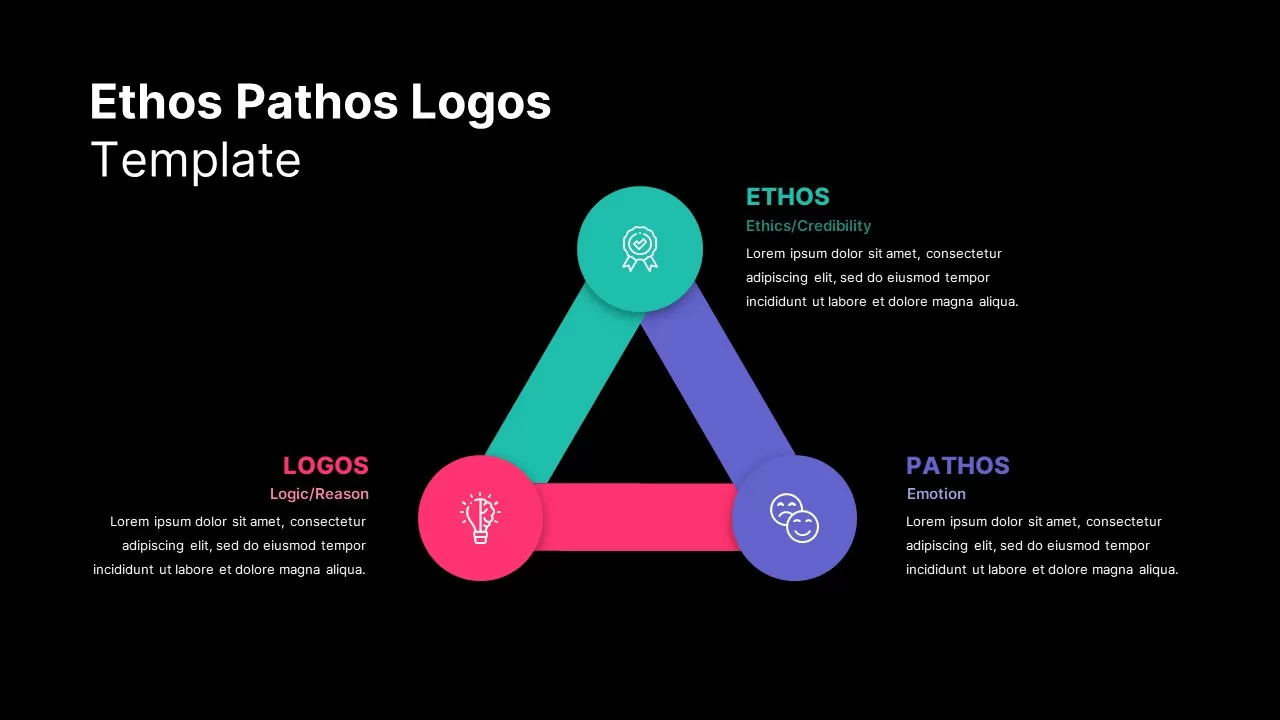How To Master Advertisements With Ethos: A Comprehensive Guide
Advertising has evolved significantly over the years, but one timeless approach remains highly effective—advertisements with ethos. Ethos, a concept rooted in credibility and trust, plays a crucial role in shaping how audiences perceive and interact with brands. Whether you're a marketing professional or an entrepreneur, understanding how to leverage ethos can elevate your advertising strategies to new heights.
In today's competitive market, consumers are bombarded with countless ads daily. However, not all advertisements resonate equally. Advertisements with ethos focus on building trust and credibility, ensuring your message is not only heard but also believed. This article delves into the power of ethos in advertising, exploring strategies, examples, and best practices to help you create impactful campaigns.
By the end of this guide, you'll gain a comprehensive understanding of how to incorporate ethos into your advertising efforts. Let's dive in and explore the nuances of creating advertisements that genuinely connect with your audience while reinforcing your brand's authority and trustworthiness.
Read also:Tattoos Sylvester Stallone A Comprehensive Look At The Iconic Tattoos Of A Hollywood Legend
Table of Contents
- What is Ethos in Advertising?
- The Importance of Ethos in Advertisements
- Strategies to Incorporate Ethos in Advertisements
- Real-World Examples of Advertisements with Ethos
- Benefits of Using Ethos in Advertising
- Common Mistakes to Avoid
- Measuring the Success of Ethos-Based Campaigns
- Building Trust Through Ethos
- Future Trends in Ethos Advertising
- Conclusion and Next Steps
What is Ethos in Advertising?
Ethos, derived from the Greek word meaning "character," refers to the credibility or ethical appeal an advertiser establishes with their audience. In the context of advertisements with ethos, it involves showcasing the moral and ethical values of a brand, making it more relatable and trustworthy to consumers.
When advertisers use ethos effectively, they appeal to the audience's sense of trust and credibility. This approach is particularly powerful because it taps into the psychological need for authenticity and reliability in branding. By emphasizing ethos, brands can build long-lasting relationships with their customers.
Key Elements of Ethos in Advertising
Understanding the key elements of ethos is essential for creating impactful advertisements. These elements include:
- Authority: Demonstrating expertise and knowledge in the field.
- Credibility: Establishing trust through transparency and honesty.
- Reputation: Leveraging a positive brand image and history.
The Importance of Ethos in Advertisements
In today's digital age, where consumers are more informed and skeptical, the importance of ethos in advertisements cannot be overstated. Ethos serves as the foundation for building trust and credibility, which are crucial for successful marketing campaigns.
Studies show that consumers are more likely to engage with brands they perceive as trustworthy. According to a survey by Edelman, 63% of consumers trust brands that consistently demonstrate ethical behavior. This statistic underscores the significance of ethos in shaping consumer perceptions.
Why Ethos Matters More Than Ever
With the rise of social media and online reviews, consumers have more access to information than ever before. Brands that fail to establish ethos risk losing their audience's trust and loyalty. Ethos-driven advertisements help bridge this gap by fostering genuine connections with consumers.
Read also:Maddox Batson Age Unveiling The Life And Achievements Of A Rising Star
Strategies to Incorporate Ethos in Advertisements
Creating advertisements with ethos requires a strategic approach. Below are some effective strategies to incorporate ethos into your campaigns:
1. Highlight Expertise
One of the most powerful ways to establish ethos is by showcasing your brand's expertise. This can be achieved through:
- Featuring industry leaders and experts in your advertisements.
- Providing valuable insights and educational content.
2. Use Testimonials and Endorsements
Testimonials and endorsements from satisfied customers or respected figures can significantly enhance your brand's credibility. For example, a well-known celebrity endorsing a product can lend their reputation to the brand.
3. Share Your Brand Story
Telling your brand's story is an excellent way to connect with your audience on a personal level. Share your journey, values, and mission to create a sense of authenticity and trust.
Real-World Examples of Advertisements with Ethos
Several brands have successfully implemented ethos in their advertising campaigns. Below are some notable examples:
Example 1: Nike's "Just Do It" Campaign
Nike's "Just Do It" campaign is a prime example of ethos in action. By featuring renowned athletes and highlighting their achievements, Nike establishes itself as a leader in the sports industry.
Example 2: Dove's "Real Beauty" Campaign
Dove's "Real Beauty" campaign focuses on promoting self-esteem and body positivity. By aligning itself with ethical values, Dove builds trust and loyalty among its audience.
Benefits of Using Ethos in Advertising
Incorporating ethos into your advertisements offers numerous benefits, including:
- Increased consumer trust and loyalty.
- Enhanced brand reputation and credibility.
- Improved customer engagement and conversion rates.
These benefits contribute to the long-term success of your marketing efforts, making ethos an invaluable asset in your advertising toolkit.
Common Mistakes to Avoid
While ethos is a powerful tool, certain mistakes can undermine its effectiveness. Below are some common pitfalls to avoid:
- Overpromising and underdelivering.
- Failing to align with your brand's core values.
- Ignoring customer feedback and concerns.
Avoiding these mistakes ensures that your ethos-based advertisements resonate positively with your audience.
Measuring the Success of Ethos-Based Campaigns
To determine the effectiveness of your ethos-driven advertisements, it's essential to measure key performance indicators (KPIs). These may include:
- Customer engagement metrics such as likes, shares, and comments.
- Conversion rates and sales figures.
- Customer feedback and reviews.
By analyzing these metrics, you can refine your strategies and optimize future campaigns.
Building Trust Through Ethos
Trust is the cornerstone of any successful advertising campaign. By leveraging ethos, brands can build trust and foster meaningful connections with their audience. This involves:
- Being transparent about your products and services.
- Delivering on promises and commitments.
- Actively addressing customer concerns and feedback.
These practices reinforce the importance of ethos in creating advertisements that resonate with consumers.
Future Trends in Ethos Advertising
As technology continues to evolve, so do the trends in ethos advertising. Some emerging trends include:
- Increased use of AI and machine learning to personalize advertisements.
- Greater emphasis on sustainability and ethical practices.
- Integration of virtual and augmented reality experiences.
Staying ahead of these trends ensures that your advertisements remain relevant and effective in the ever-changing marketing landscape.
Conclusion and Next Steps
In conclusion, advertisements with ethos are a powerful tool for building trust and credibility with your audience. By incorporating strategies such as highlighting expertise, using testimonials, and sharing your brand story, you can create impactful campaigns that resonate with consumers.
We encourage you to take action by implementing these strategies in your next advertising campaign. Share your thoughts and experiences in the comments below, and don't forget to explore other articles on our site for more insights into effective marketing practices.
Sources:
- Edelman Trust Barometer
- Forbes - The Power of Ethos in Advertising
- Harvard Business Review - Building Trust in Marketing


